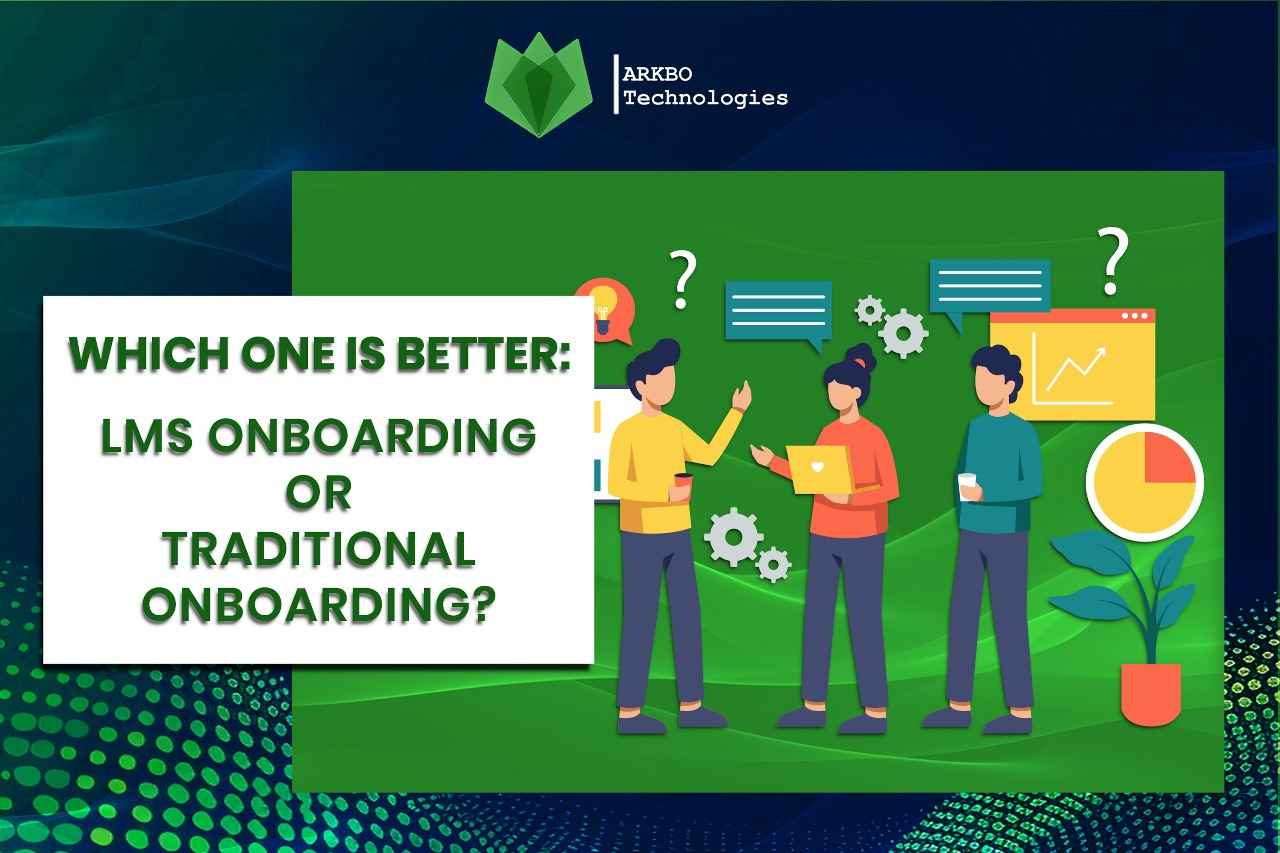
The onboarding process is crucial for new hires' understanding of the organization. However, onboarding isn’t just about briefing the company culture; it is also about acquiring necessary skills and feeling confident in their roles.
At present, organizations can offer their onboarding using either a conventional process or use digital platform like LMS for the given process. But which one is best?
In this blog, we will examine the details of traditional and LMS onboarding, as well as the differences between them. First, let’s start defining these onboarding styles.
Traditional onboarding refers to the physical or in-person onboarding processes. Here, newly hired employees attend orientation sessions, meet their teams, and receive training from HR or managers directly. This approach is prevalent in most corporations because it allows personal interaction, direct mentorship, and hands-on experience, which are crucial for certain roles.
An LMS-based onboarding system refers to the use of a Learning Management System (LMS) to deliver, manage, and track the entire onboarding process of an employee digitally. Onboarding via the LMS platform offers an interactive, structured, and automated learning experience for new hires.
According to TalentLMS, organizations using LMS-based onboarding experience:
organizations using LMS-based onboarding experience:
Up to 70% improvement in onboarding structure and employee retention,
67% of Gen Z employees feel more welcomed and valued
71% of new hires feel better prepared for their job after completing LMS-led onboarding.
Just as there’s a big difference between traditional training and LMS-based training, the same goes for onboarding. Let’s explore how conventional and LMS-powered onboarding compare.
For traditional onboarding, employees are required to attend sessions at a specific time and place. Most are done within office premises. This fixed structure can make it challenging for new hires to balance orientation schedules, especially in large or remote organizations.
On the other hand, LMS onboarding offers complete flexibility. In this platform, new employees can access onboarding courses anytime, from any device, and complete them at their own pace. Such flexibility makes the onboarding process smoother for both remote and hybrid teams. Moreover, LMS ensures no one misses critical training due to scheduling conflicts.
Conventional onboarding makes the HR teams manually track attendance, completion, and progress. These data, often kept in spreadsheets or paper forms, are vulnerable to errors.
But scenarios are different in LMS-focused onboarding, as the platform automatically records every learning activity. It records their module completion, quiz performance, and time spent on each section. Also, managers can easily access reports and analytics to check who has completed onboarding and who might need additional support. This data-driven insight helps improve the overall onboarding process.
When organizations make any changes to their existing company policies, processes, or compliance rules, it affects their traditional onboarding process. This means updating onboarding materials, which can take weeks. HR may have to reprint manuals, update presentations, and schedule new sessions.
Whereas LMS onboarding allows instant content updates. Administrators can edit, replace, or add new modules within minutes. This ensures every employee receives the most up-to-date information. In the long run, this kind of consistency helps maintain compliance and accuracy across all departments.
Traditional onboarding typically ends after the first few days or weeks of employment. This also leaves employees with limited access to materials afterward. This one-time approach makes it harder for new hires to revisit training or reinforce learning.
On the other hand, LMS-based onboarding solves this problem by offering continuous access to resources. New hires can return to the platform anytime to refresh their knowledge, access updated modules, or explore advanced learning paths. This creates a culture of ongoing development and engagement.
Traditional onboarding often requires HR teams to carry out repetitive administrative tasks such as scheduling, attendance, document collection, and sending reminders to new hires. This does take a lot of time and resources.
In contrast, LMS onboarding automates these processes. The system automatically assigns courses, tracks progress, sends notifications, and even issues completion certificates. This automation saves HR teams valuable hours, reduces human error, and allows them to focus on creating an engaging onboarding experience.
The transformation from traditional onboarding to LMS-enabled onboarding marks a significant shift in how companies prepare and welcome new employees.
LMS onboarding provides flexibility, scalability, and better engagement, and hence ensures a productive and confident employee journey. Moreover, the measurable improvements in retention, training costs, and time-to-productivity make LMS an essential tool in today’s competitive work environment.
Although LMS has numerous benefits, human connection and relationship-building through traditional elements still remain important. For best results, organizations can make a hybrid onboarding model.
If your organization has not adopted LMS for onboarding, it is best to start as soon as possible. You can implement ARKBO LMS- a popular LMS in Nepal to shift your onboarding process from traditional to digital or online. Contact us to start your LMS-based onboarding of new hires.